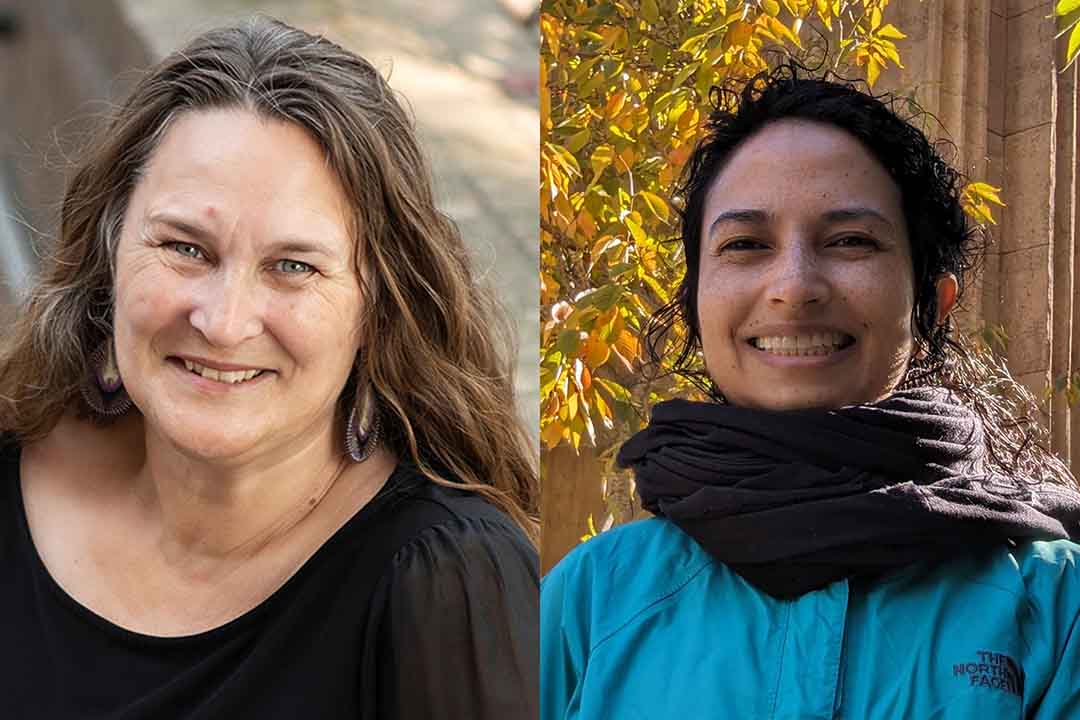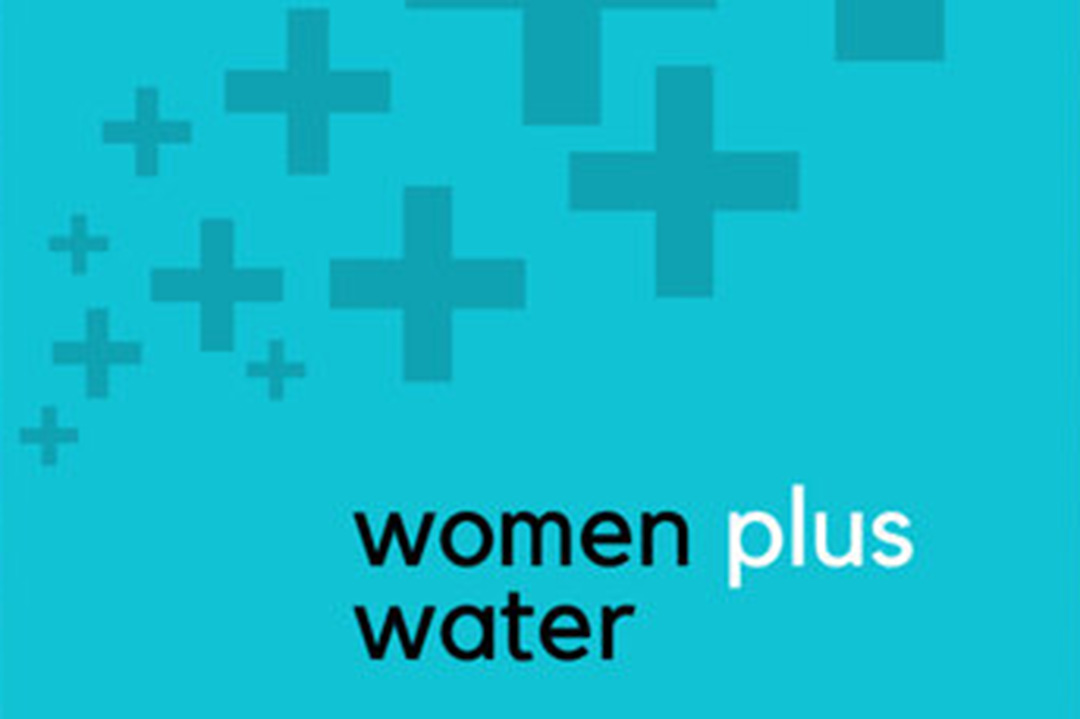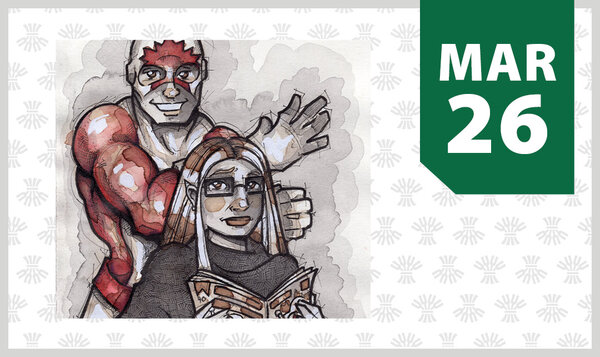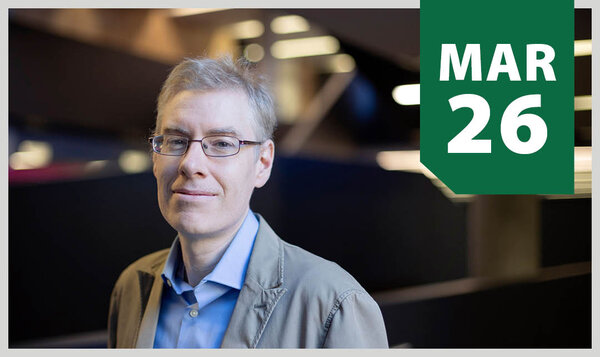
Women and Girls in Science: Leading a new, sustainable era
One of USask’s top water researchers creates inclusive opportunities through intentionally diverse initiatives
by Kristen McEwen
Dr. Corinne Schuster-Wallace (PhD) says that water is in her blood.
Aside from the literal interpretation, Schuster-Wallace grew up in Wales, often spending time at the beach next to the water.
“We used to sit down on the beach as teenagers, and share a pizza and hang out, and listen to the waves,” Schuster-Wallace recalled.
“I’ve always been a water person,” she said. “My pathway has always been water,” she said. “That’s really the thread that’s tied everything together.”
She carried that interest into university, where her passion for the world’s most valuable resource continued to flourish into a full career as a world-renowned water researcher.
Schuster-Wallace is the executive director for the Global Institute for Water Security (GIWS) at the University of Saskatchewan. She is also an associate professor in the Department of Geography and Planning in the College of Arts and Science.
Schuster-Wallace has led GIWS since 2023, which has been a key resource in helping USask rank No. 2 in water resources research in Canada.
“I’ve met wonderful people, particularly wonderful women, in water. It’s been about the right time, right place, right people, right opportunity. It’s also been about not being afraid to jump.”
Women and Girls in Science Leadership
February 11 is the 9th International Day of Women and Girls in Science. This year’s theme is Women and Girls in Science Leadership, a New Era for Sustainability.”
In 2022, Schuster-Wallace delivered remarks to the United Nations on Feb. 11 about water research, and the work needed to be done to strengthen participation of people from equity-deserving groups. She has also spoken at the UN event in 2023 and 2024.
“I am a white person, and I’m English speaking, and there are privileges that come with some of the identities that I hold,” she said.
Schuster-Wallace said she’s reflected on the perceived conflation between privilege and merit—when privilege is something that exists and is not earned.
“The whole point of the (UN Sustainable Development Goals) is to leave no one behind,” she said. “Women and girls have been left behind, and other equity deserving groups have been left behind.”
According to the UN, women make up one-third of all researchers but only represent 12 per cent of members of national science academies.
“It’s important to have women and representatives from all equity deserving groups in the sciences and broader than in STEM and STEAM, because diversity really does foster innovation,” Schuster-Wallace said.
One of the three pillars for this year's theme is environmental integrity—something that Schuster-Wallace and the GIWS team works towards every day through their research in water.
In 2018, Schuster-Wallace created Women Plus Water, an initiative that increases the visibility of women in water research and increasing diversity in sustainable water management on local and international levels. The series is co-hosted by the College of Arts and Science and GIWS and supported by Global Water Futures Observatories.
800jpg

The initiative created an expert list which officially launched at the UN Assembly in 2023. The list is open to experts who are committed to gender equity in water and interested in sharing their expertise related to water-related UN Sustainable Development Goals.
Women Plus Water regularly hosts online conversations featuring experts weighing in on a topic, from discussing specialized equipment like harnesses for women, to the role of water in ecosystems.
A Women Plus Water conversation is taking place on Feb. 11 about Inclusive Fieldwork, in celebration of the International Day of Women and Girls in Science.
The talk will be hosted by Isabel Hilgendag, featuring water protection officer Dr. Aude Vincent (PhD) from Västernorrland County, and lecturer Dr. Lynda Yorke (PhD) from Bangor University.
Water as a connector
Ines Sanchez-Rodriguez, a PhD student in the School of Environmental and Sustainability, has previously hosted a Women Plus Water conversation. Her research focuses on working alongside with Indigenous communities to create regenerative and conservation plans for the Saskatchewan River Delta.
800jpg

Sanchez-Rodriguez found that she connected with the other researchers during the webinar, despite coming from different backgrounds.
“The three of us reached the same conclusion—and it’s that water is a connector,” she said.
Nature relies on collective communities, ecosystems, to survive, she said. Researchers also need leaders willing to create sustainable communities.
“Some of the Indigenous studies that I have read for my research, and (it’s clear) we definitely need to change the knowledge pattern that we have been following if we want to reach different results.”
Originally from Colombia, Sanchez-Rodriguez was born and raised in Bogotá until she and her mother decided to move to the countryside.
Sanchez-Rodriguez was initially interested in physics, earning a bachelor’s degree at the Universidad Pedagógica Nacional. She found herself to be one of six women in her undergraduate cohort. She then earned two master’s degrees—one in meteorology and a second in water resources.
During her studies, she fell in love with water.
“I realized how much water was important to me and the way that I grew up,” she said. “There were many years during my childhood and teenage life—La Niña—which led to (an increase of rains) in my country.
“I was always under the rain.”
With an increased rainy season, Colombia also experienced more flooding. Sanchez-Rodriguez knew she wanted to understand more about water and its impacts, including how to reduce risk.
She decided to apply to USask to pursue a PhD in Environment and Sustainability in the School of Environmental Science. She also quickly found herself participating in GIWS initiatives like the Students and Young Researchers Association (GIWS-SYR) and Women Plus Water.
“It was exciting to see people from different countries, languages,” she said. “How (Women Plus Water) was growing and growing, not just in Saskatoon, but including researchers around the world.”
Noting that there are some limitations to what women and girls can and cannot do in her home country with a culture that has strong ties to gender roles, Sanchez-Rodriguez hopes that girls are given the chance to dream, think, and do whatever they want to do.
Sanchez-Rodriguez noted she had strong support from her own mother and aunties to approach whatever she wanted as a career.
“Whatever you have in your mind is possible, tangible,” she said. “If you have the tools, if you have the opportunity, why not make it possible?”
Together, we will undertake the research the world needs. We invite you to join by supporting critical research at USask.


